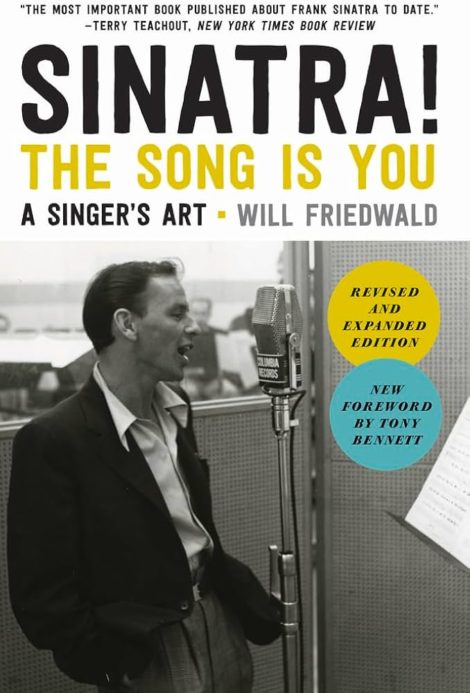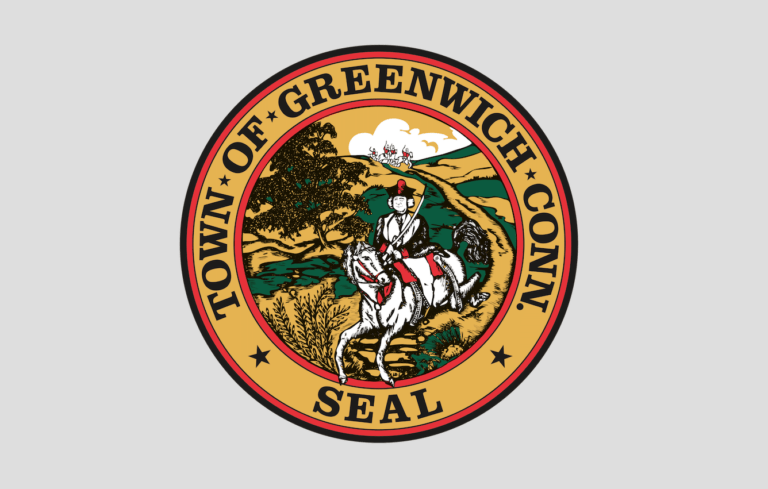By Greenwich Retired Men’s Association

At the November 15 meeting of the Greenwich Retired Men’s Association, Tim Brooks introduced Will Friedwald, the author of “Sinatra! The Song is You.” Mr. Friedwald writes about music and popular culture for The Wall Street Journal, The New York Sun, The New York Stage Review, Vanity Fair, and Playboy, and he hosts the radio show “Sing, Sing, Sing.” He has written ten books, including the award-winning “A Biographical Guide to the Great Jazz and Pop Singers.” Drawing upon interviews of hundreds of Sinatra collaborators, and of “The Voice” himself, “Sinatra! The Song is You” chronicles Sinatra’s five-decade career focusing on his singing, rather than other well-publicized aspects of his life, such as his romantic liaisons. Friedwald began by complimenting the RMA’s Tim Brooks on his own music-related books, then observed that Sinatra did more than anyone else to establish the Great American Songbook, the loosely defined canon of early twentieth century jazz, pop, and show-tune hits from composers such as Irving Berlin, Cole Porter, George Gershwin, and Rodgers & Hart. Early in the twentieth century such songs were viewed as ephemeral; people would be shocked to learn that a song popular at one time would remain popular a decade later. In fact, on Lucky Strike’s “Hit Parade,” which featured the ten most popular songs of the week, it was rare for a song to make the list two weeks in a row. Sinatra turned this around by including great decades-old songs on his albums and in his concerts. He helped cement the view that rather than ephemera these works were America’s contribution to music – our Bach and Mozart.
Friedwald used video clips of Sinatra performances to illustrate many of the points that he made about Sinatra’s singing and career, beginning with “Luck Be a Lady” from “Guys and Dolls.” Sinatra played Nathan Detroit in the 1955 movie, although he later lamented that he had not played Sky Masterson, the romantic lead who sang this particular song. He joked that he had been beaten out for that role by the renowned singer Marlon Brando.
Sinatra, however, sang “Luck Be a Lady” on the 1963 studio cast album of the show, and he made the song his own. Popular songs at the time fell into two categories: upbeat, “swing” songs and romantic ballads. In Sinatra’s rendition, “Luck Be a Lady” was both. It begins with staccato singing and a distinctive swing mood as the singer basically gives orders to Lady Luck, but then, without a tempo change, sharply pivots to a wistful, romantic mood as he beseeches her to take pity on him.
Friedwald also played a video of Sinatra singing “My Funny Valentine,” from the play “Babes in Arms.” Sinatra left his artistic imprint on the song. While it was originally in four-four time throughout, he switched a middle section to three – i.e., waltz time. In addition, he introduced a countermelody taken from “Porgy and Bess” at the end of the song. The song was virtually ignored after its release in 1937, but after Sinatra’s 1953 rendition, it was recorded and performed by numerous artists. Friedwald also played a Sinatra performance of Cole Porter’s “I’ve Got You Under My Skin.” The song was included in Sinatra’s 1956 album “Songs for Swinging Lovers,” which took old love songs and added a beat, making them danceable. The contrast between Sinatra’s version of the song and the original was striking.
Much of Sinatra’s best work grew out of his collaboration with composer and bandleader Nelson Riddle. The fact that Sinatra wanted to collaborate distinguished him from almost all his contemporaries. It was traditional for singers to show up the day of a performance and be handed a list of the songs they should sing and the keys in which to sing them. Sinatra, however, would choose his songs and their keys months in advance, and then collaborate with the bandleader on the orchestration. His model of the singer shaping the performance, rather than just singing, became the norm in the generation that followed him.
Friedwald ended by noting some other characteristics of Sinatra’s singing. In contrast to many contemporaries, he did not belt or shout – he left that to the orchestra. And he rarely ended a song loudly and dramatically. That part would come shortly before the conclusion, but he would end with a whisper rather than a bang.
To see the full presentation, go to https://greenwichrma.org, cursor to “Speakers” and click on “Speaker Videos.”
The RMA’s upcoming presentation, “What You Need to Know about Your Cataract,” by Dr. Cynthia MacKay, is scheduled for 11 AM on Wednesday, December 6th. Dr. MacKay will speak about cataracts – the number one cause of blindness in the world – and cataract extraction, which is the most common surgical procedure in medicine. If you live long enough, you will develop a cataract.
She will explain what a cataract is, what causes cataracts, how you will know if you have a cataract, how you can prevent cataracts, how surgeons remove cataracts, and when it is time for you to schedule surgery. She will give advice on how to choose the power of your new plastic replacement lens and whether you should opt for an expensive “specialty” lens. You will watch a video of cataract surgery performed using the latest surgical technique.
Dr. MacKay is a board-certified ophthalmologist, with comprehensive training in all aspects of eye care, and with special expertise in diseases of the retina and eye laser surgery. She is Clinical Professor of Ophthalmology, Columbia University College of Physicians and Surgeons (Emeritus). Doctor MacKay retired in August 2018 after 40 years of ophthalmology practice in Manhattan.
Her formal training and education: Harvard University: BA, 1964; State University of New York, Downstate Health Sciences Center Medical School, 1973-1977; Lenox Hill Hospital: Internship in Medicine, 1977-1978; New York Presbyterian Hospital/Columbia University Medical Center: Residency in Ophthalmology, 1978-1981; New York Presbyterian Hospital/Columbia University Medical Center and Bellevue Hospital: Fellowship in Retina, 1981-1982.
To stream the presentation by Dr. MacKay at 11 AM on Wednesday, December 6th, click on https://bit.ly/30IBj21. This presentation will also be available on local public access TV channels, Verizon FIOS channel 24 and Optimum (Cablevision) channel 79.
Note: The views expressed in these presentations are those of the speakers. They are not intended to represent the views of the RMA or its members.
RMA speaker presentations are presented as a community service at no cost to in-person or Zoom attendees, regardless of gender. Any member of the public who would like to receive a weekly email announcement of future speakers should send a request to members@greenwichrma.org. The RMA urges all eligible individuals to consider becoming a member of our great organization, and thereby enjoy all the available fellowship, volunteer, and community service opportunities which the RMA offers to its members. For further information, go to https://greenwichrma.org/, or contact members@greenwichrma.org.




